Mugla City Guide
A big part of the borders of Mugla
were within the area of Antique Caria Region in Ancient Ages, and the
first settlement in the area is being estimated to be settled in 3500 -
200 B.C.
Mugla city located on the south part of Aegean Region is tourism center
of Turkey with it's white painted red and clay roofing tiles
traditional houses, small narrow streets, with it's peculiar to
architectural structures with a great splendid and rich cultural values
, natural and historical beauties within it's all towns and provinces
and with many other beauties that the history and the nature gave this
region.
Dalaman Brook provides available racecourses for rafting sports every
season, and there are numerous camping places in many points of the
city. The intensity of sandy and beautiful beaches in Mugla makes it a
tourism paradise for both local and international tourists therefore it
gets quite number of visitors all year around.
Places to visit in Mugla
Museums;
Mugla Museum (The pieces found from Yatagan-Stratonikeia Antique City,
and three fossils found in Kaklica hills fossils are being displayed in
this museum), Bodrum Underwater Archeological Museum, Marmaris
Archeology Museum, Milas and Fethiye Museums.
Stratonikeia / Stratoniceia / Stratonicea or Stratonice (Eskihisar) Antique City (was established in the 3rd century B.C.).
Lagina Ancient Site / Lagina Antique City; One of the important
culture center of Carians is still being called Leyne in Turkish
Language, and this Lagina-Hekate Sacred or Holy Site was open for
settlements and civilizations since 3000 B.C. up to our present days
with it's great history.
Sedir Island; Cedrea / Kedreai Antique City, numerous towers and city
walls / ramparts, Temple of Apollon / Apollo and Apollon Church, it's
theater and ancient harbor ruins is one of the most attracting
visitors place in Mugla and it's also sometimes referred as the island
of Cleopatra.
Halucarnassus - Bodrum;
Mausoleum or Halucarnassus Tomb / Grave Ruins which was discovered by
Newton in 1857 and the friezes of the grave were taken to U.K. to
British Museum was famous for being one of the seven wonders of the
world, but at the time being there is only footprints of the grave and
a piece of it's frieze. The city walls and the antique theater of
Bodrum is a must-see places in the area and is one of the most visited
tourism center of whole Turkey.
Knidos / Cnidos Antique City (Tekir Bay, a history that goes back to
7th century B.C., and it's Aphrodite Temple and Demetler Sacred / Holy
Site makes it a valueable and must-visit place for visitors and tourist
of the city.)
Heraklia / Herakleia Antique City; takes it's name from the famous
philosopher Heracles. The alluviums were taken away by Menderes River
and turn the antique city into today's Bafa Lake is one of the another
highlights of Mugla with it's interesting sights such as the small
islands on the lake and the churches constructed on the foot of Latmos
Mountain, the caves where those monks used to live during the time and
the natural structure and atmosphere of the location makes it a
hot-spot in the region.
Caunos / Kaunos is the town named as Dalyankoy at present and it is
famous for it's lake with leech, five temples, theaters from the
ancient Rome / Roma Age, Harbor Agora, sarcophagus ruins and the rock
tombs makes the place another touristic area of the location.
Tlos Site; Rock tombs from Lycian Age, Tower belongs to Ancient Roma
Era, Byzantine Church, Acropolis, Hamam / Bath - Gymnasium complex,
Agora and theater antique city are some of the important sites of the
area that are still available for visit in our present day.
British Tower, Termera, Gumuskesen Tomb / Grave Monument, Mindos, Becin,
Euromos, Milas, Kiran Lake, Labranda, Amos, Iasos / Kiyikislacik,
Sinuri Temple, Loryama, Gemiler / Aya Nikola - Saint. Nicholas Island,
Cadianda / Kadyanda Antique City, Pinara in Minara Village, Letoon,
Oenoenda in Gavur Pazari / Market, Sidyma and Telmessos Temples are the
main historical and touristic sites of Mugla city.
Mosques and Tombs; Kursunlu Mosque 1943, Grand Mosque was built in 1344
and is one of the biggest mosques of the city, Seyh Mosque 1565, Haci
Ilyas Mosque 1330, Aga Mosque 1737, Milas Grand Mosque 1378, Belen
Mosque 14th century, Fruzbey Mosque 1394, Ahmet Gazi Madrassah and Tomb
was established in 1375 and is one of the strongest establishment of the
city.
Churches; Panagia Pirgiotissia Churches (Asagi / Down Churches) and Taxiarthis Church (Yukari / Upper Church).
Colluoglu Pavilion; The pavilion was established in 1719 represents it's
great architecture structure altough having a big devastation on it's
partial.
Thermals and Spas; Gel Girme Mud Bath, Bodrum Karaada Spring, Dalaman Incebel Thermal Spa and Fethiye Gebeler Village Spring.
Mugla Beach; Oludeniz / Dead Sea in Fethiye Town ,Butterfly valley,
Saklikent / Hidden City, Gocer 12 Islands, Katranci, Calis, Gunluk,
Hisaronu-Ovacik Beaches are quite famous both locally and
internationally.
Cennet / Paradise Island in Marmaris, Fosforlu Cave,
Ciftlik, Icmeler, Gunnucuk, Kumlubuk, Yalanci Bogaz and Turunc are some
of the beautiful sandy beaches of the area.
Guvercinlik within the border of Bodrum, Yalikavak, Gumusluk,
Turgutreis, Golkoy, Bagla, Torbali, Ada Bogazi, Kadikalesi, Bitez Beach,
Bagla, Aspat, Akyarlar, Karaada, Ekincik Bay of Koyecegiz and Dalyan.
Datca in Ula Town, Gokeova and Dalaman beaches are world wide famous holiday places for summer vacations.
Dalyan-Iztuzu Beach of Ortaca; The protecting place of carette turtles
whose generation is on the edge of ending has the award of protecting
it's nature as the second on the world list .
Provinces of Mugla
Mugla center, Ula, Bodrum, Milas, Dalaman, Marmaris, Datca, Fethiye, Yatagan, Koycegiz and Kavaklidere

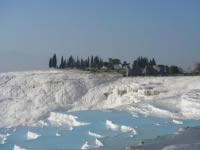 Pamukkale is one of the highlights of Turkey, and also referrers to Cotton castle in Turki.
Pamukkale is one of the highlights of Turkey, and also referrers to Cotton castle in Turki. 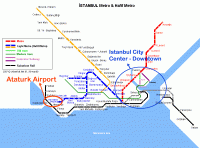 Istanbul city airports, location direction and maps of the all airports in Istanbul. How m.
Istanbul city airports, location direction and maps of the all airports in Istanbul. How m. 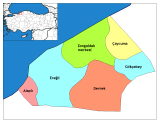 Zonguldak on the western part of Black Sea Region is a rich land for the history and ancie.
Zonguldak on the western part of Black Sea Region is a rich land for the history and ancie. 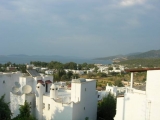
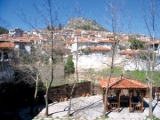
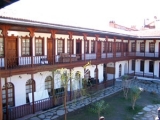
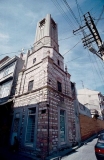
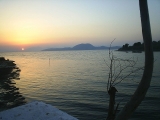
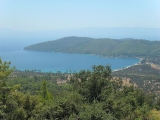

Latest 5 Comments & Request: